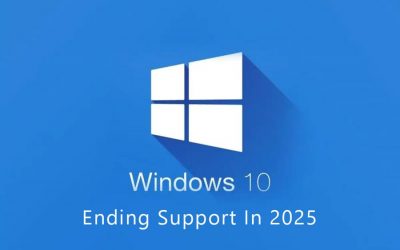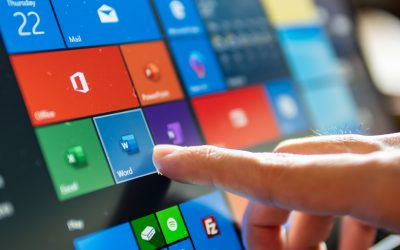9 Easy Computer Things Everyone Should Know How to Do

It really doesn’t matter how tech savvy you are, there are certain things that every one of us has to deal with when using a computer –and let’s face it, we don’t always deal with them in the most efficient ways.
There are plenty of simple things that we take for granted; like avoiding viruses, using keyboard shortcuts, or keeping your data backed up. Even if you believe you have mastered all of these tricks, you may want to pass this on to some of your less computer-savvy co-workers.
Here are 9 things that everyone can (and should) learn to keep their computer fast, safe, and easy to use.

Set yourself up a simple backup system
It’s just a fact of life now: we should all back up our computers. Unfortunately, it’s always one of those things that you’ll set up “one day”. The trick is, setting this up only takes minutes, so you can set it up now and forget about it until it’s needed. If you’re backing up to an external drive, you can just use simple tools that are built into your computer, like Windows Backup or Apple’s Time Machine. The key thing to remember is that this will only keep you safe if your computer fails. If you lose your home in a fire, get your possessions stolen, or any kind of disaster occurs, you’ll have lost all those important files. If you’ve got a few computers to backup use our online backup service, or use Storage Craft is ideal when you have a single computer and want to ensure that you have a full copy of whatever data you have on your computer.
Shortcuts make everything faster
The great thing about computers is that they can do a lot of things much faster than a human. There is an enormous amount of shortcuts that allow you to save time, such as Ctrl+F to find a word, Ctrl+S to save the file you are working on, Ctrl+P to print, or Ctrl+T to open a new tab in your web browser. Learning them might seem like more trouble than it’s worth but after you use a shortcut one or two times, you’ll wonder why you ever used a mouse. Check out our list of keyboard shortcuts here.
Protect yourself from viruses
It’s a good idea to learn the difference between viruses, trojans, and other kinds of attacks. Next step, install some good antivirus – we recommend using Bitdefender. You can (and should) even get antivirus for your phone as an extra precaution. But at the end of the day, the best way to avoid viruses is to use common sense: don’t click on links that look suspicious, don’t install programs from untrusted sources, don’t open up attachments that you aren’t expecting.
Keep your PC free of crap
Ever wonder how that Yahoo toolbar got on your system, or why there’s just so much junk installed on your machine? Having so much junk on your computer can be a huge problem, but that doesn’t mean you have to take it. With the right tools and a little know-how, you can avoid that crap forever: just uninstall the stuff that came with your system, and learn the ways that companies trick you into installing stuff you don’t want. Keeping your PC nice and clean.
Access your home computer from anywhere
We’ve all been there – you are somewhere with your laptop and suddenly realise that you have left something important on your home computer. Luckily, we can now use software like Dropbox to access our files anywhere. Also, it is pretty handy to know to access your computer while you are away from home. Using a simple app like TeamViewer, you can log into your home computer from another machine and use it as if you were sitting right at your desk – whether you just need to grab a quick file or access a program you don’t have anywhere else.
Keep your machine in top shape with regular maintenance
Computer maintenance has become quite confusing over the years – between defragging, cleaning up temporary files, and other tasks, it’s almost like trying to maintain a car. Luckily, it’s gotten easier as the years have gone by: you only really need to do one or two things to keep your computer running fast and smooth. Lifehacker have done the hard work for you and have written a guide on Windows maintenance and Mac maintenance.
Instantly share files between two computers
No longer do you need to search low and high for a USB to share a file or two with a friend. It’s very easy to transfer a file between two computers over your wireless (or wired) network, whether it’s between you and a friend or between multiple computers that you own. A good way to share these files easily is using the Windows’ Homegroup feature or using Dropbox.

Easily find your lost or stolen phone
Losing your phone, laptop, or other technology comes when you least expect it – otherwise it wouldn’t be lost so easily – so it pays to set up some safeguards while you can. iPhone users can enable Find My iPhone, and Android users should enable the Android Device Manager, which allows you to track your phone if you lose it. Of course, the best solution is making sure it doesn’t get stolen in the first place, and making sure all your personal data is locked down. Which brings us to our last tip…
Keep your personal information safe and secure
Because the Internet really isn’t the safest place, it means that we all need to make sure we are keeping our personal information safe. To do this, make sure you use strong passwords, remove personal information from photos and other files, and never use open public Wi-Fi networks without protection. Keeping your personal information safe is easier than it sounds, and if you aren’t sure what to do, check out this checklist for staying safe online from Lifehacker. You’d be surprised how unsafe you were being before.






